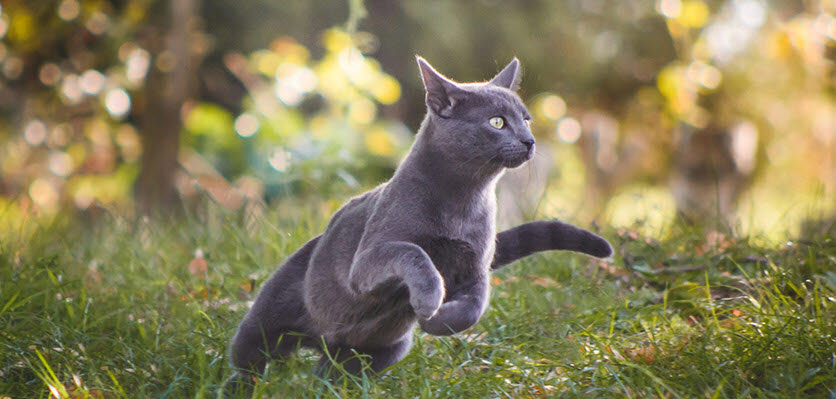
Far from the image of the lovable lasagne-eating Garfield, obesity in pet cats is no laughing matter. In fact, it has been estimated that around 59% of cats are either overweight or obese in the US. Obesity has been linked to increased risk of diabetes, arthritis, cancer and heart disease in pets. Read on for tips to get the weight off your feline friend.
Is my cat overweight or just fluffy?
Sometimes it can be hard to tell if a cat is overweight, particularly if they have long hair. This diagram by the World Small Animal Veterinary Association shows how underweight, normal and overweight cats look. Additionally, you can run your hands down their chest and over their pelvis. If you can’t feel their bones without applying some pressure when you run your hands over them, they might be overweight. If you aren’t sure, your local veterinary clinic would be more than happy to make an assessment and evaluate if your cat needs to lose weight.
Managing weight in a multi-cat household
Managing weight loss can be tricky if you have more than one cat, but only one or two of them are overweight. Managing weight in a multi-cat household can be very challenging, so it’s important to recruit the help of your veterinarian and invest in some of the technology available. It can be difficult to separate cats for every meal, particularly if some of them are faster eaters than others. A good way to manage any differences in appetite and eating pace between cats is to use food puzzles and slow feeders.
Microchip enabled automatic feeders are another good option, as you can set the amount of food each cat will receive in a day and stop them from overeating. Your veterinarian can help you figure out how much you should feed each cat.
Tools for weight loss
Even if you don’t have multiple cats, slow feeders and microchip enabled automatic feeders are useful tools to help cats lose weight. Increasing the amount of time your cat spends doing activities, such as playing, will also increase their energy expenditure. Play their favourite game with them every day to get them moving. There are also special diets available which are either low energy, high satiety or both.
These commercial diets are another useful tool in your arsenal against weight gain, as they support your cat while they reduce their weight. Your veterinarian will be able to advise you on the best options for your cat. All weight loss plans should be made in consultation with your veterinarian, as some cats have underlying conditions that need to be monitored during weight loss.
There is no denying it, getting your cat to lose weight can be a challenge. Many cats, particularly indoor desexed cats, spend more time sleeping and eating than being active. However, by using puzzle feeders, actively playing with your cat, separating multiple cats during feeding times and using special weight loss foods, the good news is, it can be done.
